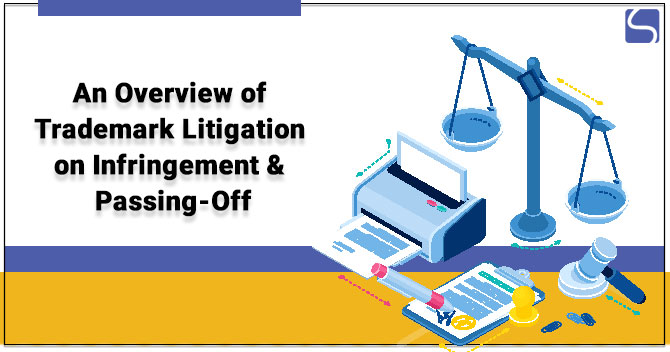What is the Trademark Assignment Agreement? – A Complete Guide

Karan Singh | Updated: Mar 25, 2021 | Category: Trademark
Trademark Rights are transferrable through the Trademark Assignment Agreement. When a registered trademark is assigned by an owner to another party, then the ownership of a Trademark is deliberated upon the other party, either with goodwill (completely) or without goodwill (for a restricted number of goods or services). Such a Trademark Assignment Agreement, often called an Assignment Deed, can be signed even if the trademark registration is not done; innovative creators or inventors, for instance, are often asked to give ownership of the work to the company that appointed it. And, of course, already registered Trademarks can also be assigned. In both cases, the assignee should apply to the Trademark Registrar within six months. Scroll down to check more information regarding the Trademark Assignment Agreement.
Table of Contents
What is a Trademark?
Trademark is a sign, name, or logo which differentiates products and services of a specific company from others in the market, and such mark comprises design, logo, phrases, word, names, signatures, etc. By registering your Trademark, you can protect your Trademark from being copy or misuse by any other unauthorized person or any third party without permission. TRIP or Trademark Related Aspects of Intellectual Property Rights agreement defines Trademark regarding laws from Article 15 to 2. The Trademark Agreement offers seven years of protection for Trademarks that are renewable before the specified time.
Let’s Understand About Trademark Assignment Agreement
Trademark Assignment Agreement is the transfer of a Trademark owner’s rights, title or name, and interest in service mark/Trademark. The transferring party or assignor transfer property rights in the mark to the receiving party called the assignee. But, a Trademark Assignment is different from a license; a license is only for the permission grant to use a Trademark, but it doesn’t transfer any ownership rights and is linked with TTA or Technology Transfer Agreements. Such type of Agreements are essential to occur as an additional Intellectual Property (IP) can put a company in the problem. Further, the Trademark Assignment is also a vital part of its monetization.
Different Types of Trademark Assignment
- Complete Trademark Assignment Agreement: In this type of assignment, the Trademark’s owner transfers their full rights and ownership to the other party or assignee related to the Trademark. It also comprises the right to make more transfer to another assignee. After the complete Trademark Assignment, the owner completely loses their rights over the Trademark, and the assignee or other party or person holds all the Trademark rights and ownership.
- Partial Trademark Assignment:In this type, the transfer of Trademark ownership is done to some limited products and services only. The assignor holds the rights over the portion which they have not transferred to the assignee in terms of Trademark Assignment. The assignor has the exclusive right to make a choice related to the Partial Agreement. The assigner can use these rights in their management and business.
- Assignment of Trademark with Goodwill: In this, the assignor can transfer the Trademark ownership rights and the image valued rights over the Trademark. Then the assignee can use such demonstration in the market reputation of the Trademark for the product’s promotion.
- Assignment of Trademark without Goodwill: Here are some limitations on the usage of the Trademark products on the assignee’s part, which means the assignor can restrict the assignee from not using the Trademark in the business. The same Trademark is used by both the assignee and assignor in various fields of business. This Trademark Assignment is also known as Gross Trademark Assignment. As per the Trademark Mark Act, in the case of registered marks, there are some limitations on the assignment of already registered Trademarks under Section 40 of the Trade Marks Act, wherein the possibility of creating confusion exists in the public’s mind.
What are the Advantages of the Trademark Assignment Agreement?
Following are the main advantages of a Trademark Assignment Agreement:
- Unlock Value: With a Trademark Assignment Agreement, the owner of a brand is able to unlock the brand value, which, until this time, only has value only on paper. On the other side, the assignee could be knowingly better off entering a market with an already well-established brand rather than creating a new one which takes more time and money.
- Valid Proof: In case of any problems related to the Trademark, the legal right would be easily established through the deed. The Trademark Registrar make sure that all the checks are in the right place by inspecting the validity of all clauses in the Trademark Agreement and publishing the same in the Trademarks Journal.
Registration of a Trademark Assignment
The Registration procedure for the Trademark Assignment is done under Section 45 of the Trade Mark Act, 1999. Where an individual becomes permitted by assignment to a registered Trademark, they shall apply in the suggested manner to the Trademark Registrar to register their title. Trademark Registrar shall, upon the application receipt, register them as the owner of the Trademark in respect of the products or services in respect of Trademark Assignment.
Trademark Registrar may need some more pieces of evidence and statements in proof of name/title if there is any judicious doubt about the statement’s reliability or any document furnished.
In case the Trademark Assignment validity is in an argument between the parties, the Trademark Registrar may reject the assignment registration until the right of parties has been determined by a knowledgeable court. Until an application is filed in an above-mentioned manner, the Trademark assignment will be unsuccessful against a person obtaining the incompatible interest in or under the registered Trademark without any understanding of the assignment.
Transmission Agreement
Generally, Trademarks are assigned by way of a properly implemented Trademark Assignment Agreement, which states the transfer of the Trademark from one entity to another who is the owner of other entity. It’s to make sure that when drafting such agreement that:
- Rights of the brand’s owner are not severely affected due to the obligations contained;
- The decision and requirement concerning whether the Trademark Assignment should be with or without the goodwill of the business is negotiated and stated;
- Draft the agreement by remembering the purpose of the transaction in question.
A Trademark is licensed by the method of License Agreement. As per the Trade Mark Act, 1999, conflicting to the requirement in an agreement case, the License Agreement Registration with the Trademark Registrar of a mark is voluntary, advisable and not mandatory. Further, like in a Trademark Assignment Agreement, it’s again essential that while drafting a License Agreement, the responsibilities and the rights of the licensee are uniquely defined and pre-determined. This is crucial not only to safeguard the Licensor’s right in its own brand and to safeguard any misuse but also to prevent the licensee with their rights to use such brand.
Conclusion
The agreements of the assignment are always vital in Intellectual Property. It permits the owner to transfer their rights of ownership for commercial purposes and make sure that the financial gains to him or her. It’s a written, enforceable contract that relates to transfer the rights in a solemnize agreement between two individuals. It safeguards and regulates the exclusive rights of all the parties or entities involved in the agreement. This agreement also includes the sale of the rights, which provides the assignee full ownership over the Trademarks of the assignor.
Also, Read: Procedure for Trademark Assignment in India: A Complete Guide














